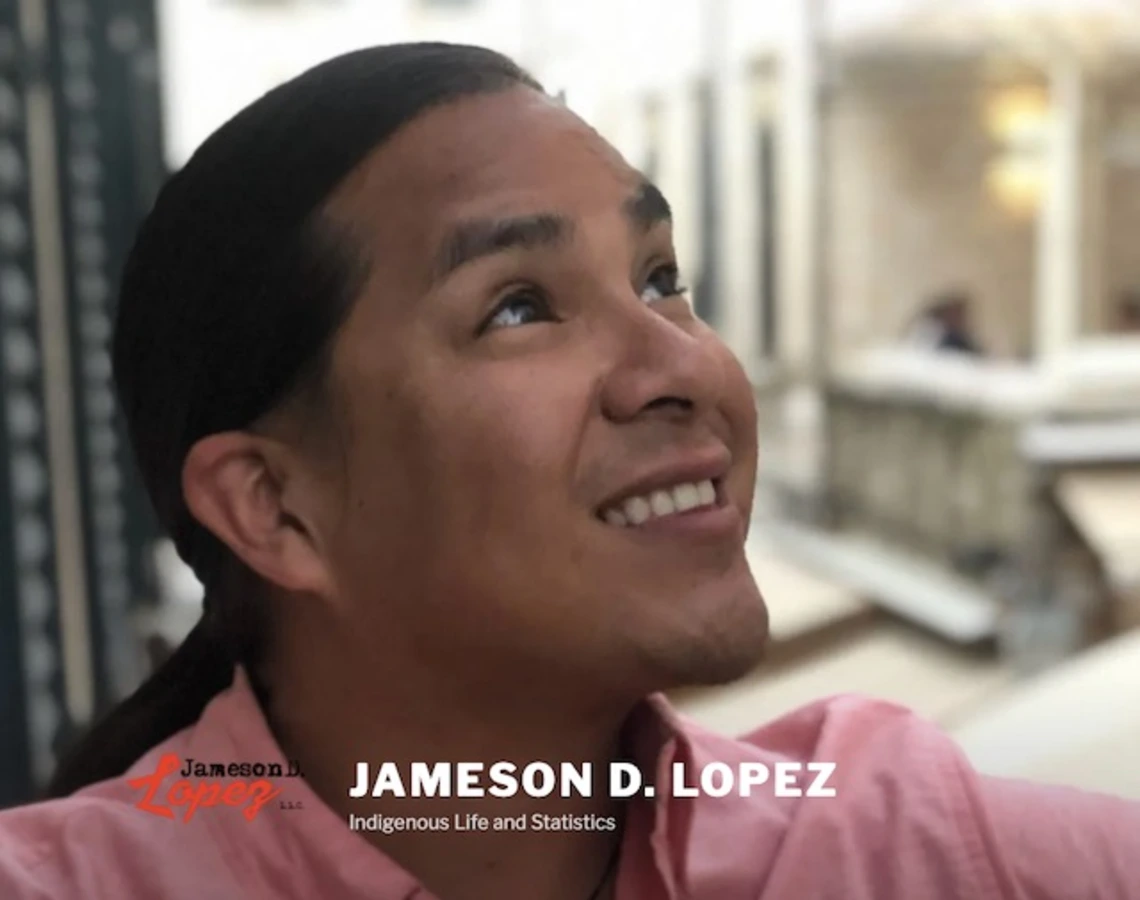Dr. Jameson D. Lopez, UArizona College of Education, receives a Haury Program recruitment award

In March 2021, the Haury Program officially launched the Native Pathways component of the Tribal Resilience Initiative to support the recruitment and retention of faculty, researchers, students, and staff whose teaching, scholarship, or outreach centers on matters relevant to Native American and Indigenous resilience. Dr. Jameson D. Lopez, Assistant Professor, UArizona Educational Policy Studies and Practice at the College of Education, is one of three successful candidates awarded a Haury Tribal Resilience Initiative Award last month.
 Dr. Lopez is currently working on a project Kwanamii, and has finished the initial short film-- which you can watch at https://vimeo.com/372466640. The project explores relationships among the Kwanamii (warrior spirit), nation-building, and postsecondary education. “The findings contribute to the further development of survey items on Kwanamii to be used in future postsecondary research among the Quechan tribe to reimagine how we look at educational outcomes based on the values of the community.”
Dr. Lopez is currently working on a project Kwanamii, and has finished the initial short film-- which you can watch at https://vimeo.com/372466640. The project explores relationships among the Kwanamii (warrior spirit), nation-building, and postsecondary education. “The findings contribute to the further development of survey items on Kwanamii to be used in future postsecondary research among the Quechan tribe to reimagine how we look at educational outcomes based on the values of the community.”
Dr. Lopez says the project is significant for several reasons: “First, having these stories told on film contributes to knowledge mobilization by highlighting Quechan veteran stories to increase the visibility of the Quechan nation to a broader public and making the research accessible. Furthermore, the project explores the relationships among the warrior spirit, nation-building, and postsecondary education. In previous research, we have framed the desire to give back as nation-building and find the subsequent positive influence on outcomes such as 1st to 2nd-year college persistence and graduation rates.”
What this project reveals is that “the desire to give back and nation-building may be linked to more traditional ways of knowing and being. Such as Kwanamii. Furthermore, Kwanamii is a community value that is reflective of traditional tribal education that Quechan students should learn and likely a better measure of educational achievement than other mainstream educational achievement measures.”
Developing these items from the community helps researchers reimagine the study of higher education among Indigenous peoples. Check out more of Dr. Lopez’s work at www.jamesondlopez.com
"The Center for the Study of Higher Education faculty, students, and the department supported my work in the Native community the most of any places I interviewed with before coming to the UArizona. That's what brought me to the UArizona. My parents both worked for a small non-profit college called American Indian College. Although an accredited college, it wasn't very glamorous. My sisters and I grew up below the poverty line through our adolescence because my parents had to raise their support to work at the college. My mom was a faculty member in the elementary education department, and my father was an administrator. It was a small college, so it was all-hands-on-deck. Sometimes you would teach, be the financial aid advisor and coach the basketball team. My parents used to take me on trips to reservations around the US. On those trips, my parents would sit in the living rooms of Native students talking with parents, grandparents, aunts, uncles, etc. And they would recruit Native students to go to college that way. I've never seen such commitment to increasing the number of Native students going to college. In my mind, my work is a continuation of my parent's work in that I'm just trying to increase the rate of Natives going into higher education to support Nation building. It's just taking a different approach by using Indigenous statistics to look at Indigenous experiences in higher education. At UArizona, I've enjoyed working with the Native Nations Institute, and especially the collective work around Indigenous Data Sovereignty. I think that's going to play a huge part in the future of Indigenous research, especially as the capacity of tribes to conduct their own research increases. My hope from all this work and research is that it will continue to contribute to increasing Native persistence in higher education that will support Nation building and economic development."
